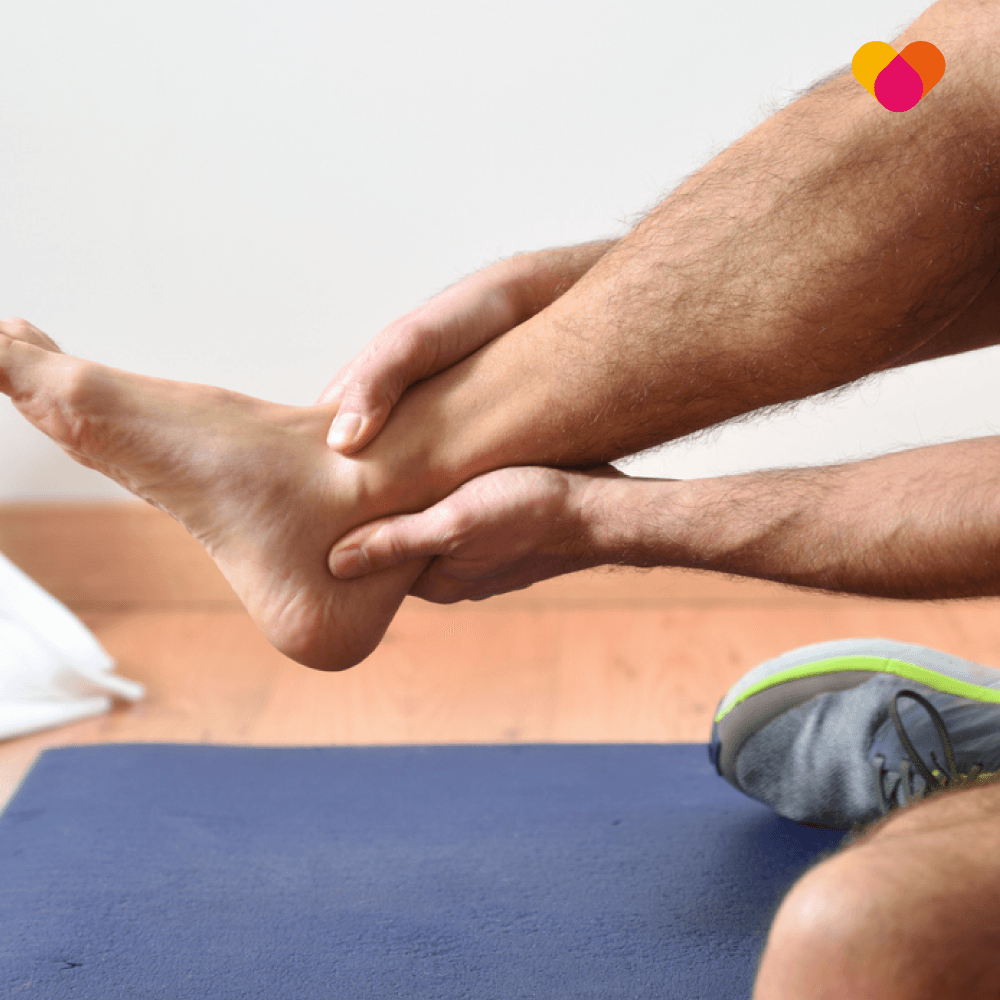The Injury Hub
Morton’s Neuroma: Info, Symptoms & Treatment.
Our Chartered Physiotherapists across Ireland are experts in the causes, symptoms and treatment of Morton’s Neuroma.
The Injury Hub: Morton’s Neuroma
What is Morton’s Neuroma?
Morton’s Neuroma is a painful condition that affects the ball of your foot, most commonly the area between your third and fourth toes. Morton’s neuroma may feel as if you are standing on a pebble in your shoe or on a fold in your sock. A neuroma is the thickening of a local nerve nerve as a result of compression and irritation.

How We Can Help.
Symptoms, Treatment & How We Can Help Your Recovery.
Learn about common Morton’s Neuroma symptoms, effective treatments, and how our expert team supports your recovery journey every step of the way.
Symptoms Of Morton's Neuroma
Usually there is no particular obvious symptom of this condition, such as a lump but instead you may experience:
A feeling as if you’re standing on a pebble in your shoe
Pain in the ball of your foot that may radiate into your toes
Tingling, burning or numbness in your toes
At first symptoms may only be felt wearing narrow toed shoes. Symptoms may go away temporarily with massage, removal of shoes and/ or reduced activity but over time symptoms will become progressively worse and may persist for days or weeks. As the neuroma becomes bigger temporary changes in the nerve can become permanent. Therefore early treatment is vital.
Morton's Neuroma Treatment With Physio
Our Podiatrist or Chartered Physiotherapists will assess your condition and provide you with the correct treatment depending on the severity of your symptoms.
Treatments often include:
* address footwear issues
* correct biomechanical issues and make the forefoot stable
* refer for steroid injection
* surgical removal Orthotics devices and arch supports for your shoes can help reduce pressure on the nerve.
Our podiatrist will work closely with our physio’s who specialise in biomechanics, and determine whether you need custom made orthotic devices or over the counter insole, which we have available in our clinics. For full details on this service click here.
Our Expertise
Morton’s neuroma often occurs in response to irritation, injury or pressure on the nerve.
Contributing factors include:
Footwear – Wearing high-heeled shoes or tight, ill-fitting shoes can place pressure on your toes.
Sports – Participating in high-impact athletic activities such as jogging or running may subject your feet to repetitive trauma.
Foot deformities – People who have bunions, hammertoes, flatfeet or excessive flexibility are at higher risk of developing Morton’s neuroma.
Our Chartered Physiotherapists will use a variety of evidence based therapies and treatments to help reduce your pain, and get you back on your feet as quickly as possible.
Our patient’s health journeys

How Much Does It Cost?
Please refer to our individual clinic location pages for pricing information.
What Are Your Clinic Hours?
Monday – Friday: 8am to 8pm
Saturday: 9am to 5pm
Sunday: Closed
*Please note, opening times can vary between clinics
Where Is This Service Available?
This service is available in any of our nationwide clinics.
Am I Covered By Health Insurance?
We work with all major insurers – Vhi, Laya and Irish Life. We recommend you check your own policy for its terms and conditions to see what cover you have.
How Do I Contact You?
Our Patient Services team is available to help you Monday to Friday from 9am to 5pm, and Saturdays from 8:00am to 4:00pm.
Call Us: 01 611 1740

Spectrum Physio
You’re In Good Hands.
We’ve treated over 250,000 patients across our nationwide clinics.











